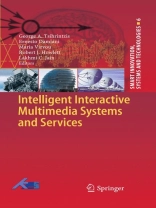KES International (KES) is a worldwide organisation that provides a professional community and association for researchers, originally in the discipline of Kno- edge Based and Intelligent Engineering Systems, but now extending into other related areas. Through this, KES provides its members with opportunities for publication and beneficial interaction. The focus of KES is research and technology transfer in the area of Intelligent Systems, i.e. computer-based software systems that operate in a manner analogous to the human brain, in order to perform advanced tasks. Recently KES has started to extend its area of interest to encompass the contribution that intelligent systems can make to sustainability and renewable energy, and also the knowledge transfer, innovation and enterprise agenda. Involving several thousand researchers, managers and engineers drawn from universities and companies world-wide, KES is in an excellent position to faci- tate international research co-operation and generate synergy in the area of arti- cial intelligence applied to real-world ‘Smart’ systems and the underlying related theory. The KES annual conference covers a broad spectrum of intelligent systems t- ics and attracts several hundred delegates from a range of countries round the world. KES also organises symposia on specific technical topics, for example, Agent and Multi Agent Systems, Intelligent Decision Technologies, Intelligent Interactive Multimedia Systems and Services, Sustainability in Energy and Bui- ings and Innovations through Knowledge Transfer. KES is responsible for two peer-reviewed journals, the International Journal of Knowledge based and Intel- gent Engineering Systems, and Intelligent Decision Technologies: an International Journal.
Зміст
Adapting Spreading Activation Techniques towards a New Approach to Content-Based Recommender Systems.- A Framework for Automatic Detection of Abandoned Luggage in Airport Terminal.- Modeling Student’s Knowledge on Programming Using Fuzzy Techniques.- Camera Angle Invariant Shape Recognition in Surveillance Systems.- Multicriteria-Based Decision for Services Discovery and Selection.- Building a Minimalistic Multimedia User Interface for Quadriplegic Patients.- Biofeedback-Based Brain Hemispheric Synchronizing Employing Man-Machine Interface.- Performance of Watermarking-Based DTD Algorithm under Time-Varying Echo Path Conditions.- Applying HTM-Based System to Recognize Object in Visual Attention.- Constant Bitrate Image Scrambling Method Using CAVLC in H.264.- Color Image Restoration Technique Using Gradient Edge Direction Detection.- Watermarking with the UPC and DWT.- Building a Novel Web Service Framework -Through a Case Study of Bioinformatics.- An Architecture for Collaborative Translational Research Utilizing the Honest Broker System.- Simulated Annealing in Finding Optimum Groups of Learners of UML.- A Smart Network Architecture for e-Health Applications.- A Music Recommender Based on Artificial Immune Systems.- The i Cabi NET System: Building Standard Medication Records from the Networked Home.- Multi-agent Framework Based on Web Service in Medical Data Quality Improvement for e-Healthcare Information Systems.- Towards a Unified Data Management and Decision Support System for Health Care.- A Glove-Based Interface for 3D Medical Image Visualization.- Open Issues in IDS Design for Wireless Biomedical Sensor Networks.- Context-Aware Notifications: A Healthcare System for a Nursing Home.- Multimodality in Pervasive Environment.- Optimizing the Location Prediction ofa Moving Patient to Prevent the Accident.- An MDE Parameterized Transformation for Adaptive User Interfaces.- Agent Based MPEG Query Format Middleware for Standardized Multimedia Retrieval.- Query Result Aggregation in Distributed Multimedia Databases.- Sensor-Aware Web interface.












